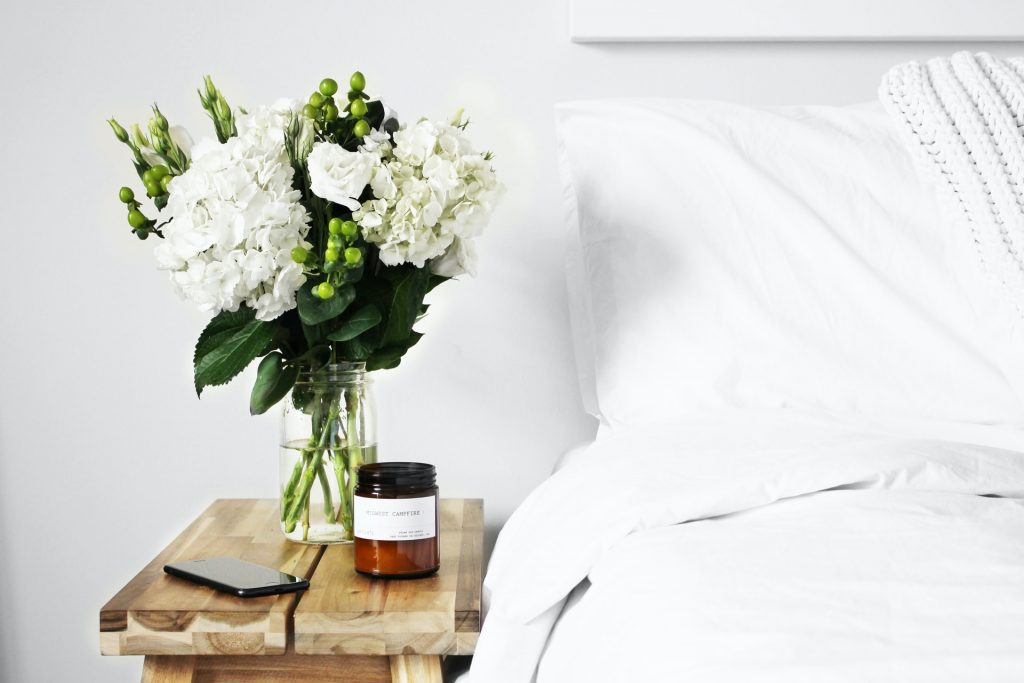If you think you know everything there is to learn about wellness, get ready to think again.
It’s easy to assume that we know how to keep ourselves on top form (even if we don’t always follow our own rules!). In reality, wellness is a complex concept that encompasses your physical, mental, and emotional health.
With so many aspects to consider, it’s not surprising that many women overlook some of the most important factors.
Making wellness a priority is a great way to enhance your life.
However, you can maximise the impact by making sure you know everything you need to about optimising your well-being.
With this in mind, take a look at these eight things every woman should learn about wellness and start living a happier, healthier life today:
1. Wellness Needs Change Over Time
As your body and environment changes, your wellness needs to evolve too. The things you need to do to stay physically healthy in your twenties may not be the same as when you’re in your fifties, for example. However, ageing isn’t the only factor that can affect your wellness needs.
Throughout our lives, we experience a wide range of situations and these have a major impact on our well-being. If you’re starting a new job, for example, your anxiety levels might increase. By paying extra attention to stress during this time, you can mitigate its potentially harmful effects.
When you think about the major changes many women experience – moving house, career promotions, having children, losing a loved one, menopause, caring for family members – it’s not surprising that our needs evolve in response. By being mindful of this and incorporating new strategies to optimise wellness, you can maintain your physical and emotional well-being at any time of your life.
2. You Need Time to Focus on Yourself
Women are known for multi-tasking but, just because you can, doesn’t mean you should. If you find your mind wandering to work or family every time you try to relax and enjoy some ‘me time’, you may not be getting all the benefits that self-care can offer.
While a fast-paced lifestyle can make it tricky to find time to focus on yourself, it’s guilt that is often the biggest barrier when it comes to women and self-care. If you prioritise other people’s needs too frequently or you feel bad for taking time out to relax alone, chances are you’re falling into the trap of feeling guilty about optimising your health.
Recognising that self-care is a critical element of your well-being is the first step to remedying this issue. After all, if you aren’t taking care of yourself, you won’t be able to perform to the best of your abilities at home or work either. However, learning to value yourself and prioritise your well-being is also an important step. Whether you take a long bath, consume CBD gummies or treat yourself to a weekend away, make sure relaxation and self-care is a non-negotiable part of your lifestyle. As you become more accustomed to taking time out for yourself, you’ll see just what a major impact it has on your overall wellness.
3. Wellness Doesn’t Mean Being Free from Illness
Enhancing your wellness and taking a proactive approach to your well-being can certainly reduce the risk of becoming unwell, but it doesn’t guarantee you’ll never fall ill. Maintaining a healthy weight can reduce the risk of diabetes and cardiovascular disease, for example, but other factors could make you a high risk for these conditions. Similarly, boosting your immunity can reduce the risk of contracting colds or flu but it doesn’t mean you’ll never have a sniffly nose or a tickly throat.
Despite this, prioritising wellness enables you to cope more effectively when you’re feeling under the weather. From minor ailments to more serious illnesses, focusing on wellness gives you the mental and emotional reserves you need to overcome challenges and reduce anxiety.

4. Sleep Always Matters
Your wellness needs may change over time but, if there’s one thing that will always be important, it’s sleep. On average, adults need around six to nine hours of sleep every night, although this can reduce you get older.
Poor quality sleep can have a major influence on your physical, mental and emotional well-being, but it can also be a symptom of issues affecting your health too. That’s why it’s important to address sleep issues, rather than putting them down to a busy schedule or uncomfortable mattress.
If you want to transform your wellness, improving your sleep quality could be the quickest way to achieve your goals. Taking a supplement, implementing a sleep hygiene routine and practising relaxation techniques are simple yet effective ways to help you drop off at night and sleep soundly.
5. Know Your Risks
Everyone should prioritise their well-being, but this means different things to different people. Your genes, lifestyle and medical history all have an impact on your risk factors, so make sure you take them into account.
If your family health history shows that numerous people have been diagnosed with respiratory problems, for example, frequent screenings could prevent you from experiencing similar symptoms. In addition to this, you’ll know that it’s particularly important to embrace a lifestyle which reduces the risk of developing respiratory conditions.
Alternatively, if your work involves being in an office or sitting as a desk all day, you’ll know that you need to make a conscious effort to be active outside of work. A sedentary lifestyle can affect your physical health, as well as your mood and outlook. By compensating for your work environment, you can ensure that your well-being doesn’t decline because of limited physical activity.
6. Fitness Must Be Part of Your Life
If you’re not a regular gym-goer or your trainers are collecting dust, it might be hard to imagine fitness ever being a routine part of your life. While most of us embrace the latest fitness craze at one time or another, it’s easy to find reasons not to work out or exercise regularly.
However, fitness is critical to your long-term well-being, so don’t put it off any longer. Of course, you don’t need to renew your gym membership and book a session with a personal trainer (unless you want to!). Major changes to your routine can be hard to stick to and may even increase the risk of injury. By implementing small but sustainable changes, however, you can incorporate them more easily into your lifestyle.
Take a daily walk, track your steps each day, make fitness sociable or create a routine you can do anywhere. If you’re not a fan of fitness, keep trying different activities until you find one you enjoy. Whether it’s dancing, rock climbing or swimming, maintaining your fitness is a major part of optimising wellness.

7. Home Cooking Can Be Easy
Unless you enjoy cooking, preparing a healthy balanced meal from scratch every evening can seem like a monumental task. We all know that diet plays an important role in our health, but it’s easy to resort to junk food when you’re tired, stress or craving something salty or sweet.
Fortunately, home cooking doesn’t have to be difficult. Forget complicated recipes and kitchen appliances that look like they come from NASA and get back to basics instead. Learn how to make three simple, healthy meals that you genuinely enjoy. By doing so, you’ll have a go-to dinner that you can rustle up at any time.
Prepping meals in advance means you’ve always got a healthy meal that can be heated up quickly, which makes it easier to stop yourself ordering a takeaway. As you become more accustomed to preparing great-tasting, healthy meals, you may even begin to enjoy cooking and become more adventurous with your culinary skills.
8. Learn to Manage Stress
We all experience stress from time-to-time but knowing how to respond to it can have a transformative effect on your life. If you’re an emotional eater, for example, you might notice your weight creeping up when you feel frazzled. Alternatively, if you isolate yourself when you’re feeling overwhelmed, you may be alienating your partner, family members and friends.
How you respond to stress affects every area of your life, so it’s important to learn healthy coping methods. From meditation and mindfulness to exercise and talking things out, there are a variety of tools you can use to manage stress. Simply work through them until you find the ones that are most effective for you.
Prioritising Wellness at Every Stage of Your Life
Wellness is something that becomes more important as you get older, nor is it something you can neglect as you age. In fact, wellness is vital at every stage of your life.
By recognising the importance it has, as well as learning how to improve your own wellness, you can enhance every aspect of your life.
Often, it only takes relatively minor but consistent changes to dramatically enhance wellness, so why not make a start today?





